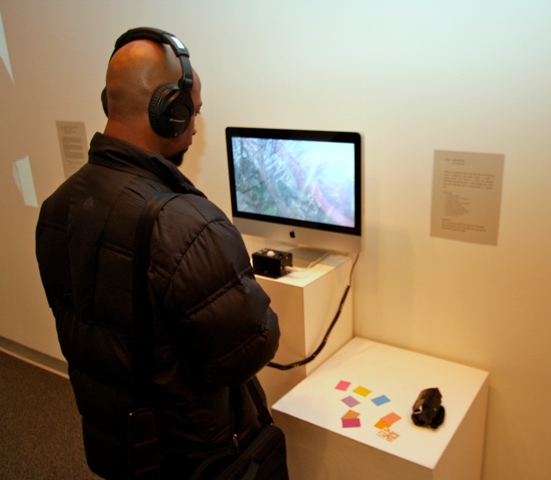Courses for Students Not Planning a CS Major

Computer Science is all around us, and touches every field of study. No matter your future career, if you want to excel, you must be able be to understand these technologies and converse with those who provide them. To meet those goals, Loyola offers computer science courses specifically for students who are not planning to major in computer science. Each of these courses satisfies one sciences/mathematics core requirement, and courses marked with an asterisk also satisfy the Business Core’s requirement for a computing course (usually listed as CS105). Non-CS-majors, including Business majors, may also take the first course in the major CS151 to satisfy one core requirement.
Full descriptions of all courses can be found in the course catalogue.
Making Sense of Data Courses
The world is flooded with data, but data by itself is useless. It needs to be gathered, processed, analyzed, visualized, and finally interpreted. Each of these courses examines real world data and the tools needed to make sense of it. Students gain hands-on experience analyzing data with high-level programming, spreadsheets, and a final approach that is unique to each course. Each course includes discussions of social and ethical issues in computing.
CS105* - Making Sense of Data with Database Management Systems
The unique module in this course is on databases. This course is particularly recommended
for business majors.
CS106* - Making Sense of Data with SPSS
The unique module in this course is the statistical software package SPSS. This course
is particularly recommended for social science majors.
CS107* - Making Sense of Data with MATLAB
The unique module in this course is on MATLAB. This course is particularly recommended
for math, science, or engineering majors.
CS108* - Making Sense of Data with Academic Research
The unique module in this course is on using Boolean expressions and logic to effectively
locate relevant data. This course is particularly recommended for humanities majors.
Flipped Classroom Model
These CS105/106/107/108 courses are taught in a flipped classroom model, and courses are cross-listed and taught in the same room by the same instructor. A flipped classroom means that students watch video recordings outside of class, and then spend class time working on assignments. Because of this setup, the instructor is immediately available if you get stuck on the work for the course, and you are never sitting idle in class. You can watch the videos whenever/wherever you'd like, as long as you get them done by the deadline. Most students really like this classroom setup.
Computer Science Applications Courses
CS115* – Cyber Security and Digital Forensics
This course provides students with a basic understanding of the vulnerabilities and
threats that challenge the Cyber Infrastructure. Students will be introduced to cyber
security resources, government agencies, industry security standards, and data privacy
and protection requirements to develop a holistic approach to digital forensics.
CS117 – Computers in Art and Design
This course focuses on using computers to create art via algorithms. Students will
learn how to write programs that generate patterns, and consider the meaning of creativity
and fundamental questions about the nature, limitations, and ethical use of computers
and algorithms.
CS118* - Computers, Robots, and Minds: Introduction to Intelligent Computing
This course is an introduction to computer science through the lens of intelligent
machines and robotics. Students participate in hands-on robotics labs and grapple
with the social and philosophical implications of intelligent computers, what intelligent
machines tell us about the nature of the human mind, and how an understanding of the
human mind helps us create intelligent computers.
CS120 - Topics in Introductory Computer Science
An introductory exploration of a topic of current interest in computer science. The
topic is chosen by the instructor ahead of time, and is listed on the course when
it becomes available during course registration. May be repeated for credit with different
topics.
CS218 - Computational Thinking: Exploring Computing through Robotics
This course is an introduction to the great ideas of computing through hands-on experiments
with robotics. Students will explore the nature and limits of computers; engage with
the philosophical and social implications of intelligent machines; and consider what
the science of computing can tell us about creativity, reasoning, and the human mind.
Same course as HN 218/HN 318.
Introduction to Programming for CS Majors
CS151* – Computer Science through Programming (4 credits)
For a more intensive study of computing consider CS151. The course introduces students
to problem solving with the fundamentals of programming, enabling them to decompose
complex problems into elementary steps for effective implementation in a modern programming
language. Students learn to program in Python, as well as learning about computer
science topics such as software engineering, artificial intelligence, and ethical
issues. This course is the first course in the CS major, although it is open to all students.
Students have an additional lab every week for hands-on programming practice.
CS151 is the best choice for a student for whom any of the following is true:
- Considering a computer science major (required for major!)
- Considering a mathematics or statistics major (required for major!)
- Considering a physics major (required for major!)
- Has taken AP CS Principles or has credit for CS105, but wants to learn more about computer science
- Primarily wants to learn how to program
- Took AP CS in Java but did not score a 4 or 5 on the test, and wants to learn more about programming or learn to program in Python
Collaboration
